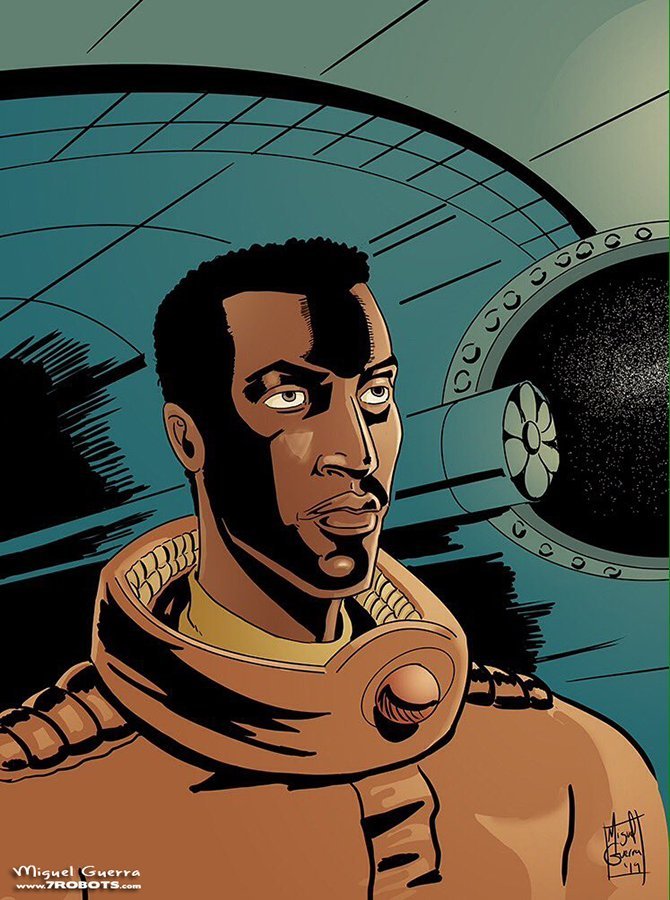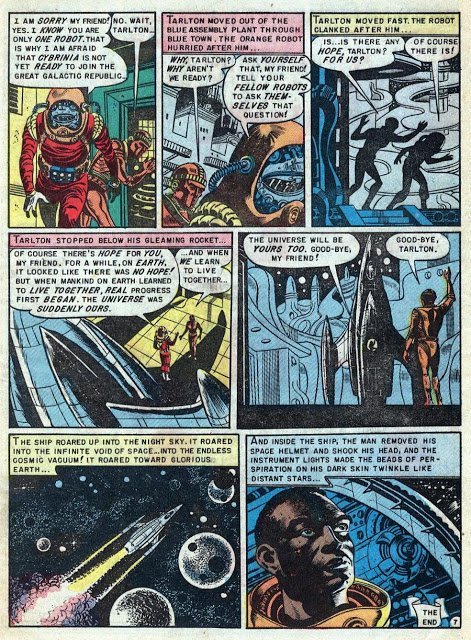Miguel Guerra’s Tribute to Weird Fantasy’s Judgment Day
This is Miguel’s tribute to a turning point in comics. “I remember reading the EC Comics story called Judgement Day as a teen. I knew that they were published in the 50’s. Later as an adult I learnt that it was controversial.”

Judgement Day was published in Weird Fantasy #18 in 1953 and illustrated by Joe Orlando. The impact of this anti-racism and anti-segregation theme cannot be understated. The controversial plot scrutinizes America’s segregation laws and features an astronaut who only removed his helmet at the end to reveal that he is African American. 1953 was not the time for even remote criticism of racism and the story provided the Comics Code Authority the perfect excuse to drive publisher, Bill Gaines, out of business.
To read the original Judgement Day comic, click here.
“The Comics Code was responsible for a multitude of sins when it was at the height of its powers…The Authority’s biggest crime when it came to EC wasn’t its blanket refusal to approve anything that allowed their horror comics to be horrific – any gore, monsters, violence, or unhappy ending was banned during their reign – but the time Comics Code made them recolour a character to be white instead of black. Judgement Day was a pivotal comic strip of its era, which handled issues of racial prejudice so well it belied its original publication date of 1953. When EC sought to reprint the story in 1956 – after the formation of the CCA – the Authority demanded that they change the story’s end panel where it’s revealed the astronaut protagonist was a black man. They had no reasoning beyond their own prejudice, seemingly unaware to the irony considering the story he featured in, and when EC printed the story with editing it, it turned out to be the last comic they ever published before going bankrupt.” [read more…]
“In the late 1940s to the early 1950s, there was much controversy in the comic book industry, and the main perpetrator of this turmoil was Dr. Fredric Wertham…a distinguished psychologist who became interested in the effects that comics had on children in 1946, and then, two years later, he appeared in an interview with Collier’s Magazine where he publicly denounced comic books… Finally, by 1950, there were public demonstrations where comic books were burned in mass
